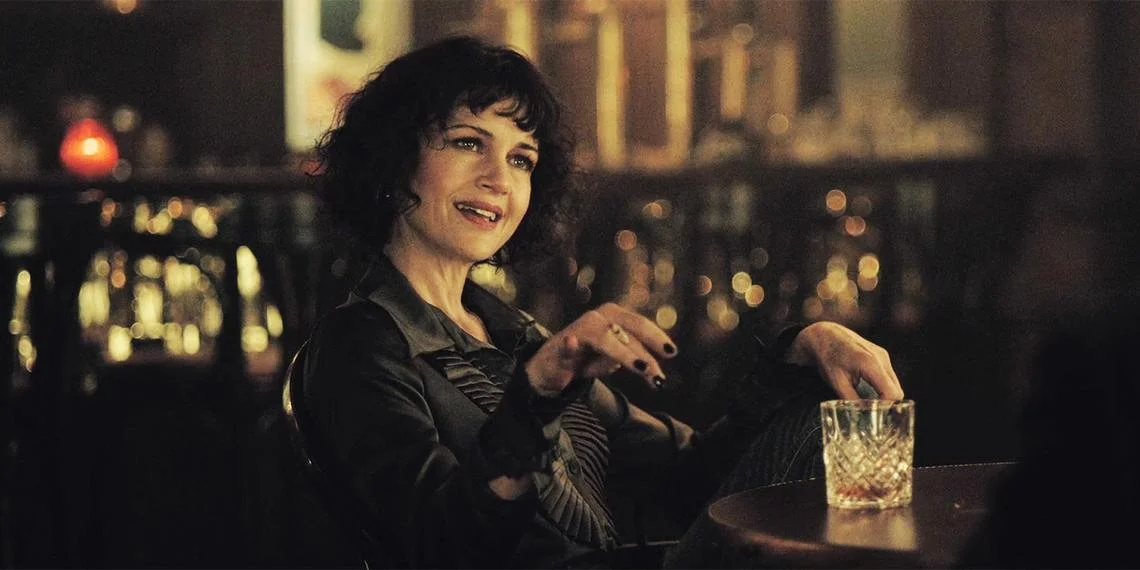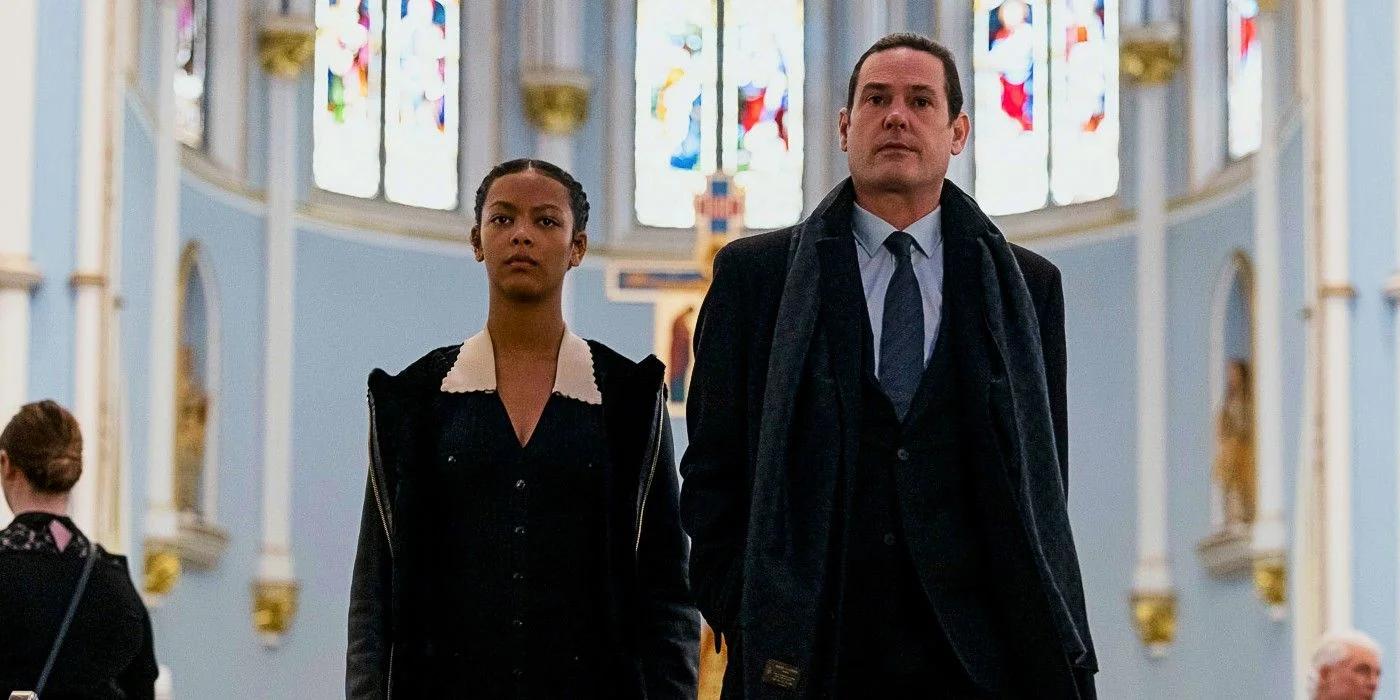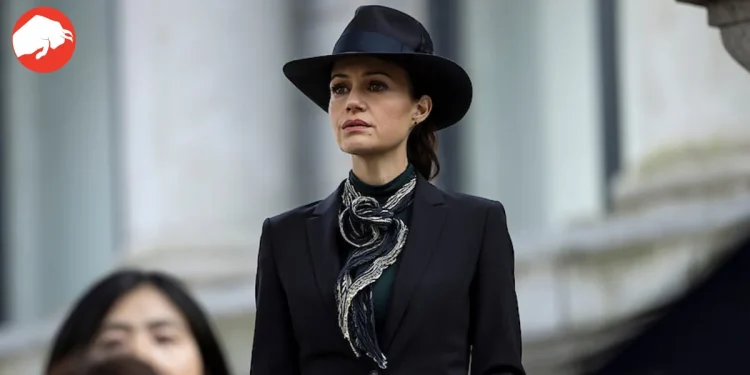When silence screams louder than violence: Unpacking the complicated relationship between Verna and the Usher family.
The Enigma That is Verna
As the latest masterwork of horror maestro Mike Flanagan, “The Fall of the House of Usher” brings a twisted edge to the tales of Edgar Allan Poe. Known for his previous Netflix hits like “The Haunting of Hill House” and “Midnight Mass,” Flanagan now dives into the story of Roderick Usher (Bruce Greenwood), a corrupt pharmaceutical CEO who finds himself entangled in a haunting web of family tragedies. However, the tale’s most fascinating aspect might just be Carla Gugino’s enigmatic character, Verna.
“If the kids had taken Verna’s advice, they would have died peacefully, like Lenore.” — Mike Flanagan
Verna’s Cryptic Warnings

During the series, Verna serves as a harbinger of doom for the Usher kids. Almost like a broken record that plays on loop, she offers advice that—if heeded—would spare the children their violent deaths. According to Flanagan, who recently clarified Verna’s role in a Tumblr post, Lenore (Kyliegh Curran) is the living—or dying—proof of what listening to Verna could mean: a peaceful exit.
Verna doesn’t force her warnings upon anyone. She delivers her cautionary words with an almost apathetic detachment, especially when interacting with characters like Leo (Rahul Kohli) and Tammy (Samantha Sloyan). The lack of intensity in her warnings adds an extra layer of chill to the unfolding horrors.
The Exception to the Rule: Camille Usher
However, when it comes to Camille (Kate Siegel), Verna flips the script. She makes a genuine attempt to protect Camille from her destined tragedy. This special treatment could be, as Verna hints, due to Camille’s intelligence that she possibly admires.
When Verna Crosses the Line
It’s not just a matter of warnings and peaceful deaths when it comes to Frederick Usher (Henry Thomas). Here, Verna turns from passive advisor to active instigator. After witnessing Frederick’s vile acts towards his wife Morella (Crystal Balint), Verna takes matters into her own hands.

“In any case, all the children would have had a peaceful death if they actually followed Verna’s advice.” — Mike Flanagan
Frederick experiences a demise so gruesome it almost overshadows the others, becoming an exception to Verna’s general rule of offering a peaceful way out. In his case, no advice is given, no warnings are shared; just a grim fate that is almost poetic in its justice.
Verna: More Than Meets the Eye
What makes Verna so compelling is her layered complexity. She offers a moral gray area in a show filled with ethical dilemmas. Her actions, or lack thereof, act as the domino that triggers the Usher family’s unraveling, raising questions about fate, free will, and the eerie spaces in between. Flanagan, ever the puppeteer of horror and suspense, leaves us to ponder whether Verna is truly an impartial spectator or a calculated player in the tragedy that unfolds.
Given Mike Flanagan’s storytelling prowess, it’s clear that Verna is no ordinary character. She’s the key that unlocks many of the mysteries in “The Fall of the House of Usher,” a story that seamlessly blends Poe’s Gothic settings with modern-day ethical questions. As viewers, we’re left on the edge of our seats, as much captivated by Verna’s mystique as we are horrified by the gruesome fate of the Usher clan.









